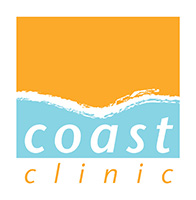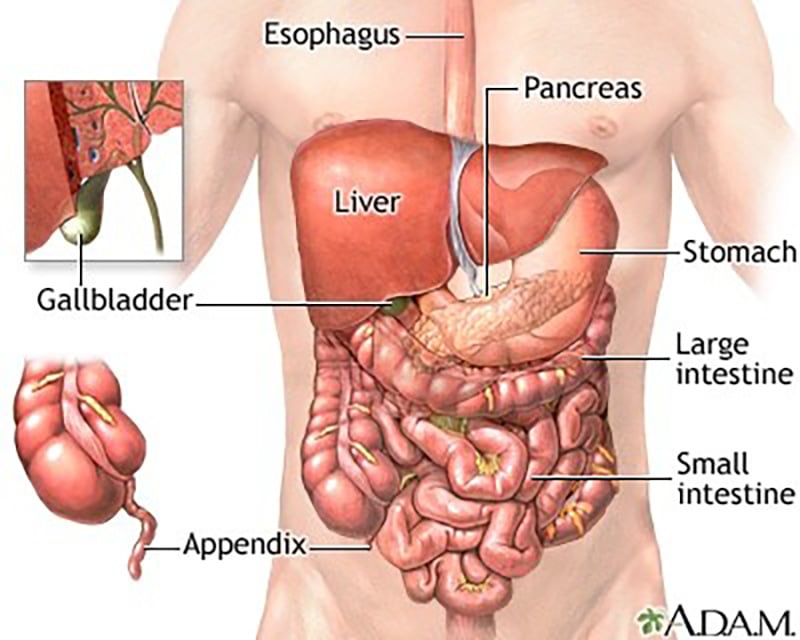The gallbladder is a small pear-shaped organ (sac), located on the right side of the body, directly under the liver. It acts as a storage facility for the pint or so of bile the liver produces every day.

Bile is a green-ish, yellowy substance containing bile acids that are essential for digestion and absorption of fats and fat-soluble vitamins, as well as aiding the digestion of proteins and starches.
Bile actually encourages this peristaltic action that eventually leads to a bowel movement and can therefore help to prevent constipation by supporting the natural elimination of toxins. Some research suggests bile also possesses antimicrobial benefits too.
The gallbladder stores the bile until food arrives in the stomach. The cells of the intestinal walls secrete a hormone called cholecystokinin which causes the gallbladder to contract and release bile into the stomach where it gets to work, digesting fats and aiding digestion.
However, if the liver is over-loaded, toxins can get dumped into the gall bladder which can lead to gall-bladder issues. A sluggish gallbladder that doesn’t release its bile can form a sort of grainy/gritty ‘sludge’, contributing to further problems like inflammation and gallstones.
Gallstones form when there is an abnormal concentration of bile acids, cholesterol and fats in the bile. Poor diet is a main contributor to gallstones as well as genetics, including inherited narrow bile ducts. In addition, research suggests that food sensitivities, including both gluten and cow’s milk proteins, can cause damage in the intestinal tract that can lead to gallbladder problems.
Gallstones can range from the size of grains of sand to pea-sized masses. They can be extremely painful and lead to inflammation of the gallbladder. This can cause severe pain in the upper right abdomen and/or across the chest and can be accompanied by nausea, a fever, chills, jaundice and vomiting. Urine may be tea or coffee-coloured. If you experience any of these symptoms, you should see your GP.
How nutrition can help
Eating the right foods with good nutrition support can help to keep the liver and the gallbladder healthy to minimise the chances of gallstones forming in the first place. A diet high in fibre (beans, pulses, fruit and vegetables) can help keep the gallbladder and the rest of your digestive system functioning properly.
Foods to avoid
Foods to avoid include coffee, saturated fats (found mainly in meat), fried foods, fizzy drinks, milk, chocolate, meats, dairy products, especially cream, and anything that is in high in sugar.
Helpful herbs
Chicory root
The ancient Romans used this herb to help cleanse the blood. Similarly, ancient Egyptians were known to consume chicory root in large amounts to aid in purifying the liver and blood. Try roasted chicory root as a natural, caffeine-free alternative to coffee.
Curcumin (extracted from Turmeric)
Curcumin has been shown to stimulate bile formation and gallbladder emptying. Curcumin is a powerful antioxidant that helps to support the liver in doing its job, filtering blood and toxins to keep your body healthy.
Milk Thistle
Studies suggest milk thistle (Silybum marianum) supports optimal liver function, enhancing bile production, flow and activity. You can use a tincture daily. Vogel do a really good one that also includes artichoke.
Ginger root, parsley, fennel and dandelion
These herbs also contain beneficial properties to aid health liver and gallbladder function.
And other helpful foods
Broccoli sprouts
Eating 1/4 cup per day can decrease bilirubin deposits in the gallbladder thus reducing the likelihood of gallstone formation. You can buy sprouting broccoli from most health food shops now. They taste great in a salad.
Pear, beetroot and apple juice
Beetroot in particular is a fantastic vegetable that is particularly great for the liver. It contains compounds that helps the liver to detoxify and protect and improve liver function.
(See recipe below for my liver-loving juice).
Bitter Foods
Adding bitter foods into your diet helps to stimulate better digestion as well as supporting your liver and gallbladder. Bitter foods stimulate the digestive juices and cleanse the liver. Lemon juice in water, for example, helps stimulate the production of bile, which acts like a natural laxative, and increases stomach acid, helping you break down food more effectively.
Bitter foods to include into your daily diet include limes, grapefruit, artichokes, dandelion, celery and celeriac, bitter greens such as spinach, rocket, spinach and watercress, swiss chard, kale and chicory.
Essential fatty acids
Use unfiltered extra virgin olive oil, walnut and avocado oils for salad dressings. These oils are rich in essential fats which the body cannot make so we need adequate daily supplies through foods.
Lecithin
Adding lecithin granules to your morning porridge/muesli improves the way your body breaks down fat and can help people with poor tolerance to fat, for example, anyone who has had their gallbladder removed. Sprinkle 1 x tablespoon into yoghurts or juices.
Vitamin C
A deficiency of Vitamin C can lead to the formation of gallstones. Aim for 3,000mg daily. Oranges, tomatoes, kiwi fruits, berries and dark green leafy vegetables are all great sources of Vitamin C.
Water
Water is essential in bile synthesis, as a good deal is used to produce bile from the conversion of cholesterol happening in the liver.
Other things to consider
- Physical exercise can reduce the risk of gallstones by 20 to 40%.
- Women are twice more likely to form gallstones than men. Females aged 40 or over who are overweight and have had children are more likely than most to suffer from gallbladder problems.
- Obesity and gallbladder disease are related.
- Rapid weight-gain (and loss) through extreme dieting can contribute to gallbladder problems.
- If you’ve had your gallbladder removed, you may experience digestive or absorption issues and find it difficult to absorb and utilise essential fatty acids, vital for general health. In addition, you may have decreased absorption of fat soluble vitamins. These nutrients are essential for optimal health and disease prevention so taking steps to enhance fat digestion and bile support is crucial.
Try this lovely juice – your liver will love you for it!
Liver-loving Juice
- 1 x organic carrot (chopped)
- 2 x bulbs of fresh raw beetroot (the skin peeled/removed) sliced
- 1 x Red apple chopped with core removed OR a handful of fresh pineapple, chopped
- 1 x small Pear chopped and core removed
- ½ inch of fresh ginger
- ½ freshly squeezed lemon
- Handful of dark green leafy vegetables (watercress/spinach/rocket)
Whizz everything into a juicer or blender. Add water to ensure you get the consistency you like. Drink slowly and enjoy!
A note of caution
Beetroot juice is high in a substance called oxalic acid, and people with kidney stones or a history of kidney stones should either avoid beetroot juice entirely or use it very sparingly.
Written by Daniela Barbaglia

